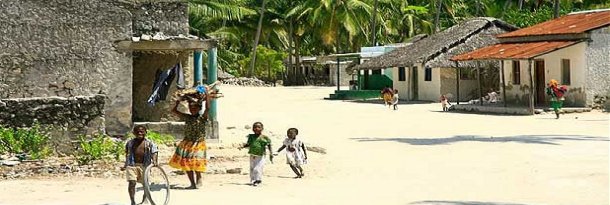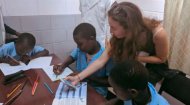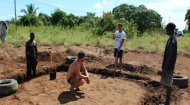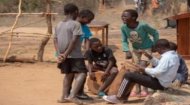|
Volunteer Mozambique |
Volunteer Mozambique |
Volunteer Mozambique | Volunteer Mozambique |

 |

|
Types of Volunteer Work in Mozambique Volunteer opportunities in Mozambique span a wide array of sectors, catering to various skill sets, interests, and levels of experience. Understanding the types of work available is the first step in finding the perfect fit for your volunteer journey. Education and Literacy: This is one of the most in-demand areas for volunteers. Many schools lack sufficient teachers, resources, and even basic infrastructure. Volunteers can teach English, mathematics, science, or other subjects in primary or secondary schools. Opportunities also exist in adult literacy programs, early childhood development centers, and after-school clubs. Beyond direct teaching, volunteers can help develop educational materials, assist with lesson planning, organise recreational activities, or even contribute to the renovation and maintenance of school buildings. Health and Medical Support: For qualified medical professionals, there are critical roles in clinics, hospitals, and community health centers, assisting with patient care, medical outreach programs, and health education initiatives (e.g., hygiene, nutrition, HIV/AIDS awareness, malaria prevention). Non-medical volunteers can support public health campaigns, assist with administrative tasks, help organise health workshops, or contribute to improving sanitation facilities. Community Development and Social Work: This broad category encompasses a range of activities aimed at empowering vulnerable populations. Volunteers might work with orphanages, centers for street children, or programs supporting women's empowerment, youth development, or individuals with disabilities. Projects could involve facilitating workshops on life skills, supporting income-generating activities (like crafts or small businesses), organising sports and creative arts programs, or assisting with food distribution and welfare services. Conservation and Environmental Protection: Mozambique's vast coastline and diverse ecosystems face threats from climate change, poaching, and unsustainable practices. Volunteers passionate about the environment can engage in marine conservation (e.g., protecting coral reefs, sea turtles, or whale sharks), wildlife conservation in national parks, reforestation projects, or sustainable agriculture initiatives. Environmental education for local communities is often a key component of these programs. Infrastructure and Construction: Many community facilities, such as schools, clinics, and community centers, are in need of construction, renovation, or basic maintenance. Volunteers can physically contribute to building projects, improving water and sanitation systems (e.g., digging wells, constructing latrines), or establishing sustainable energy solutions in rural areas. While construction skills are beneficial, many projects welcome unskilled volunteers willing to learn and contribute manual labor. Skills-Based and Professional Volunteering: For professionals with specific expertise, there are often opportunities to lend their skills to local NGOs or community organisations. This can include marketing and fundraising, grant writing, IT support, website development, business consulting for local enterprises, or photography and journalism to raise awareness for social causes. These roles leverage professional skills to strengthen the capacity of local organisations. If you are considering period of volunteer work in Mozambique check out our Mozambique profile pages to explore the country before you visit and learn how to make the most of your time work there. We recommend you learn some basic Portuguese phrases. While English is spoken in tourist areas, local communication will be in Portuguese or various indigenous languages. Dress modestly, especially in rural areas and when visiting religious sites. Be patient, flexible, and respectful of local customs, traditions, and slower pace of life. Understanding the concept of "Mzungu" (foreigner) and the expectations that may come with it is also helpful. Remember, volunteering in a developing country can be challenging. Infrastructure might be basic, resources scarce, and cultural differences may lead to misunderstandings. But above all else, enjoy! |
















